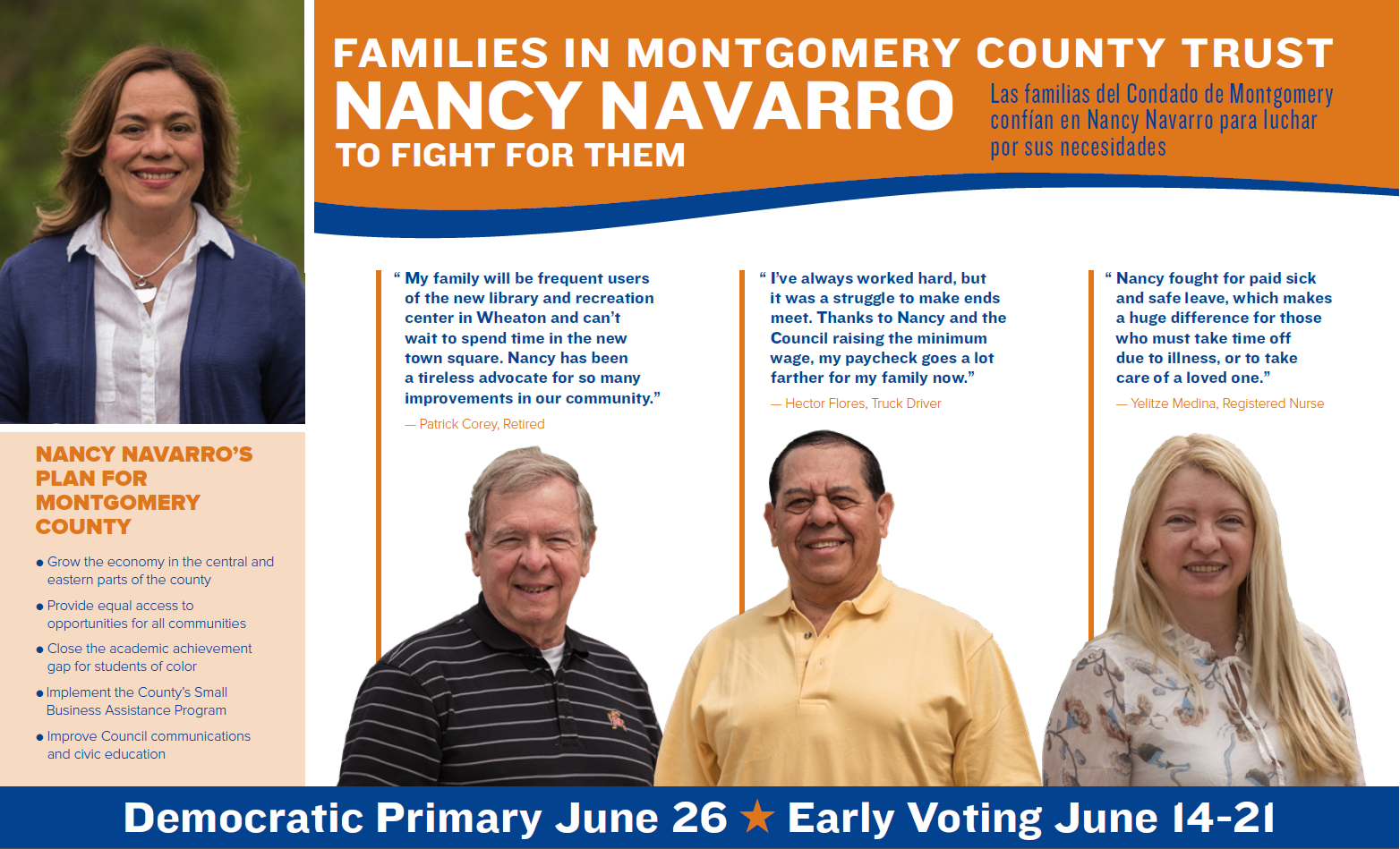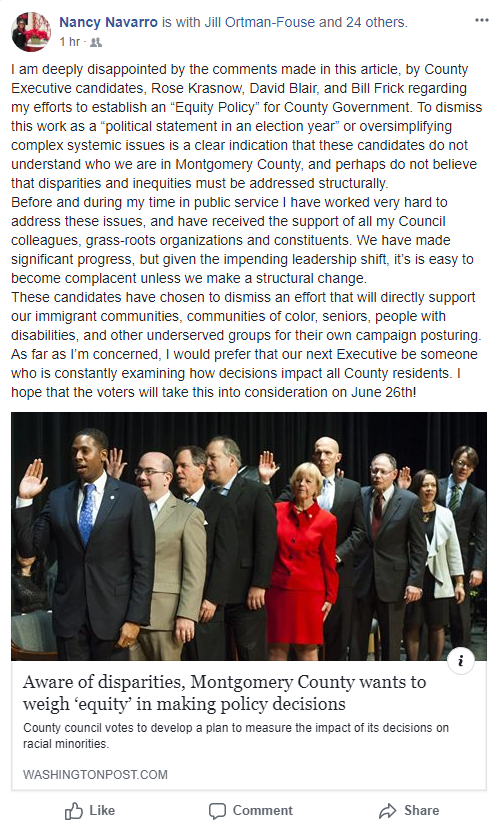Good to see that even after time away from Seventh State that I can still touch a nerve with powerful officials. Today. I am pleased to present Council President Nancy Navarro’s response to yesterday’s post on how the “Council Drive for Budget Equity Hit the Budget Rocks.” I hope to have mine up on Monday.
The Seventh State’s May 30 post by David Lublin, “Council Equity Drive Hits the Budget Rocks,” incorrectly describes where the County Council is, in creating a Racial Equity and Social Justice Policy for Montgomery County. We do not yet have a policy. In 2018, I spearheaded Resolution 18-1095 that was adopted unanimously by the Council to start the process of the policy, which we plan to adopt later in the fall, after community input.
The post also leaves the reader with the erroneous impression that by not fully funding the salary increases originally negotiated by County Executive Elrich with MCGEO that we are somehow not committed to racial equity. Actually, the Council did approve generous raises for all our employees (approximately 6 percent)—that achieve parity among all our negotiating groups and that are sustainable for our county. Most MCGEO employees will receive salary increases of between 5.75 to 6.75 percent. Racial equity and social justice are urgent moral and socio-economic endeavors for our community and county leaders, however, to tie the Council’s approved raises of about 6 percent for each employee, to racial inequities and social injustice, as Mr. Lublin does, is a baffling stretch.
In fact, beyond the raises, the fiscal year 2020 operating budget makes several investments needed to assist our more than one million residents and focuses on initiatives and programs that will help to dismantle inequities. Some examples of these priorities, many of which I championed, include: fully funding the Board of Education’s request; adding $3.1 million to Montgomery College’s budget to provide $314.7 million for higher education; providing $84.1 million for Head Start and pre-k programs; earmarking $7 million in resources for the Early Care and Education Initiative, which I initiated; providing $327.8 million for the Department of Health and Human Services; earmarking $65.2 million for the Housing Initiative Fund; providing an additional $1 million to make Kids Ride Free an all-day service, as recommended by Councilmember Glass; and increasing Recreation Department programs that serve youngsters after school. We were able to make these strategic investments, while also providing our outstanding county government employees with substantial salary increases.
Finally, Mr. Lublin makes the following observation. “The increases are well above growth in our relatively stagnant tax revenues. Few county residents have received extra pay increases to make up for anemic wage growth during the economic crisis. I know I didn’t.” The Council agrees with him; that is why we adopted affordable but fair raises for our employees. Achieving racial equity and social justice in Montgomery County is a monumental task that demands access to opportunities for all residents. I encourage Mr. Lublin to engage with us in this process. I can assure him that I do not need to tout how “woke” I am. As the only Latina ever elected to the Montgomery County Council and the lone woman currently serving among eight men as president, I along with a significant percentage of our County residents, live it every day.







